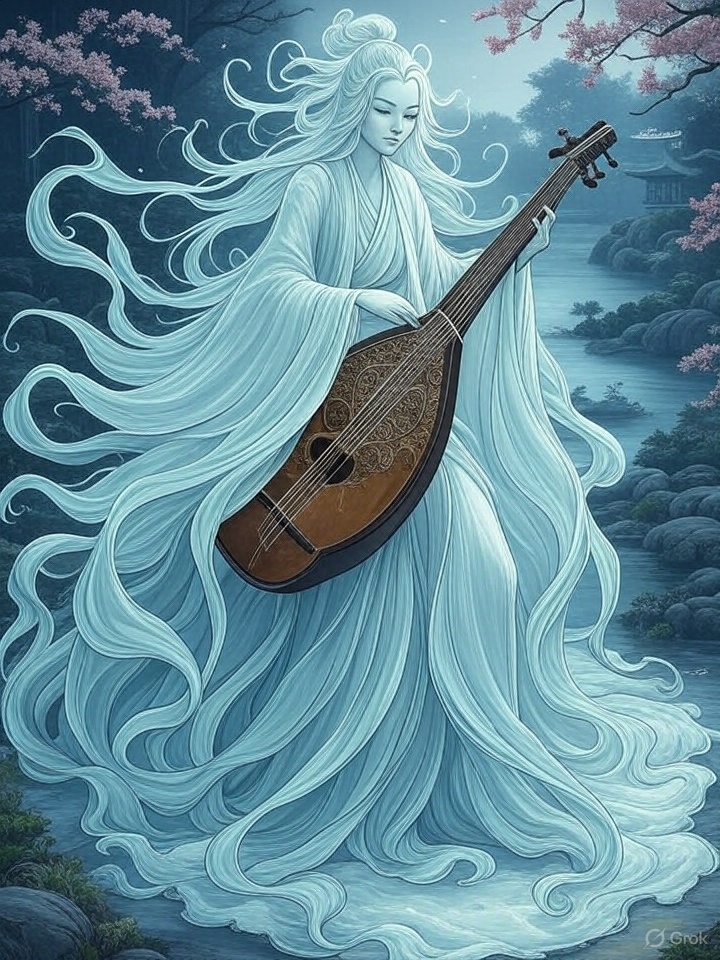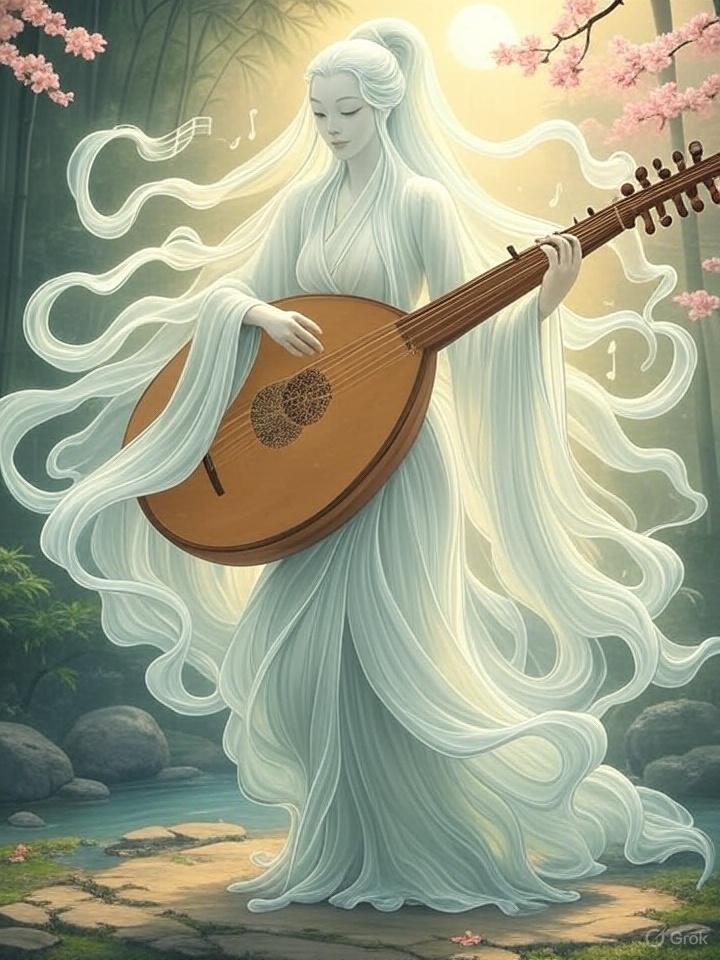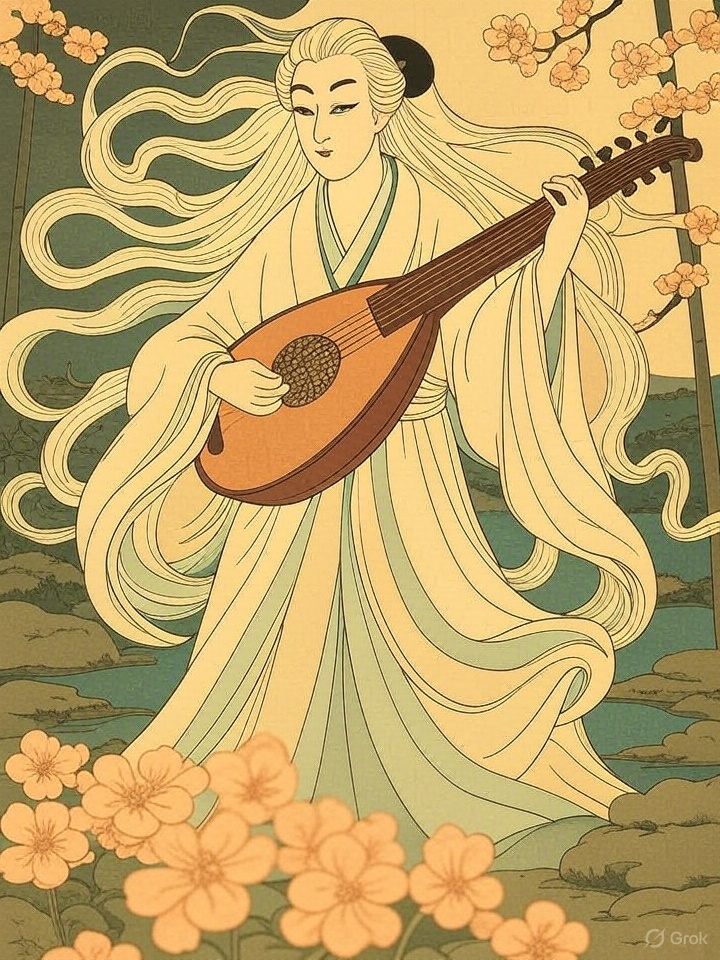Name Meaning
Overview
Biwa-bokuboku (琵琶牧々) refers to the spirit of a biwa lute that becomes animate after years of neglect. Like other tsukumogami (tool-spirits), it represents the soul awakened in old instruments.
- Biwa (琵琶) = traditional Japanese lute
- Bokuboku = an onomatopoeic sound possibly imitating plucking or movement
Origin
- Classified as a tsukumogami — an object that comes to life after a hundred years.
- Stems from Japanese folklore and Buddhist beliefs about animism and spiritual energy.
- Appears in Edo period yokai picture scrolls and folklore collections.
Appearance
- Resembles a walking biwa lute with anthropomorphic features like eyes, arms, and legs.
- May be adorned in ragged kimono or monk robes depending on the tale.
- Sometimes floats or moves awkwardly while producing eerie twangs.
Behavior & Myths
- Appears when an instrument is forgotten, collecting spiritual residue over time.
- May frighten owners, play music by itself, or wander in search of appreciation.
- Some tales say it rejoices when played again, others claim it curses careless musicians.
Symbolism
- Represents the spirit of neglected objects and a warning to treat belongings with care.
- Embodies the cultural reverence for tools and musical instruments in Japanese life.
- Appears in art and parables promoting gratitude and mindful usage.



